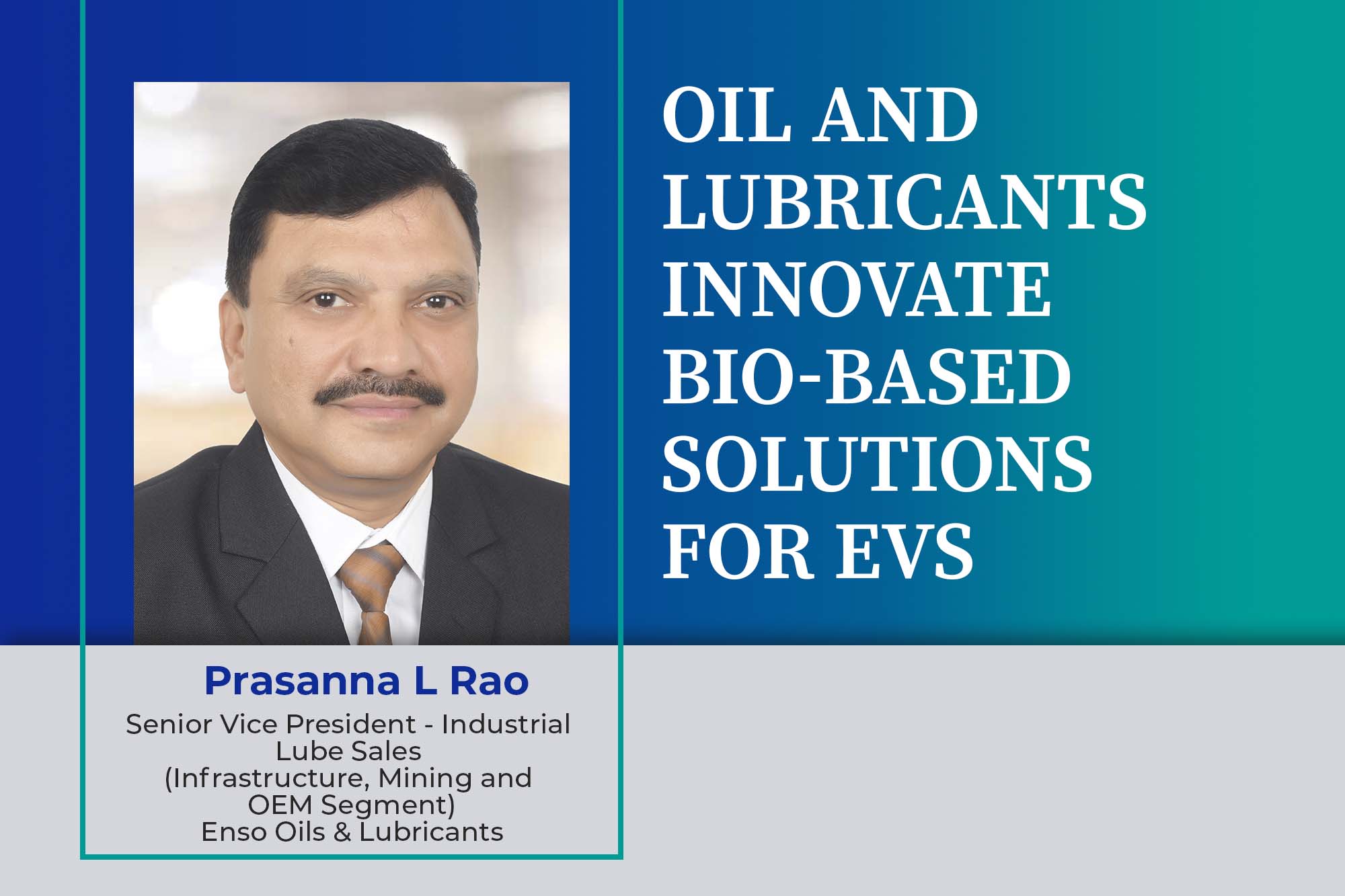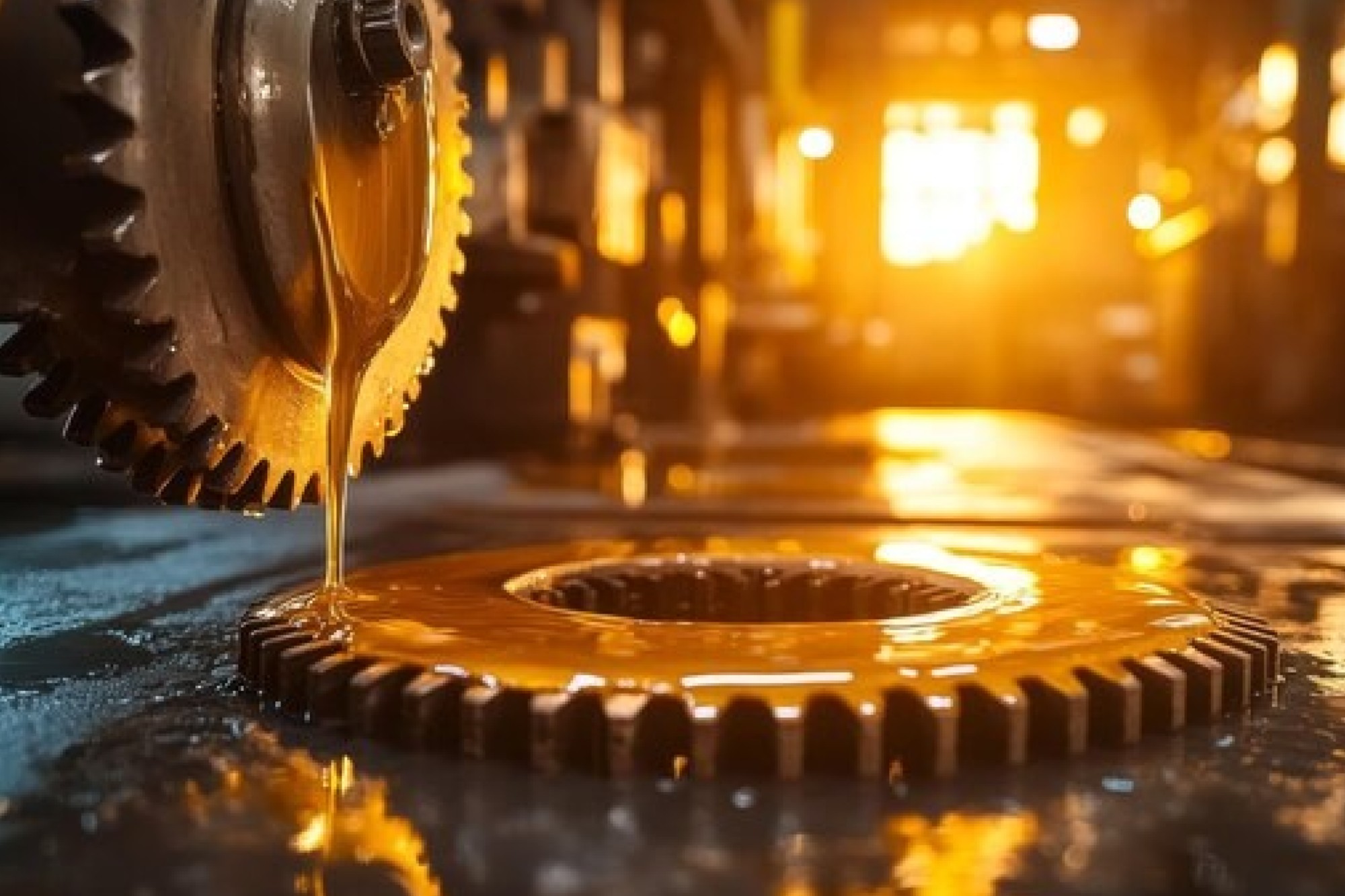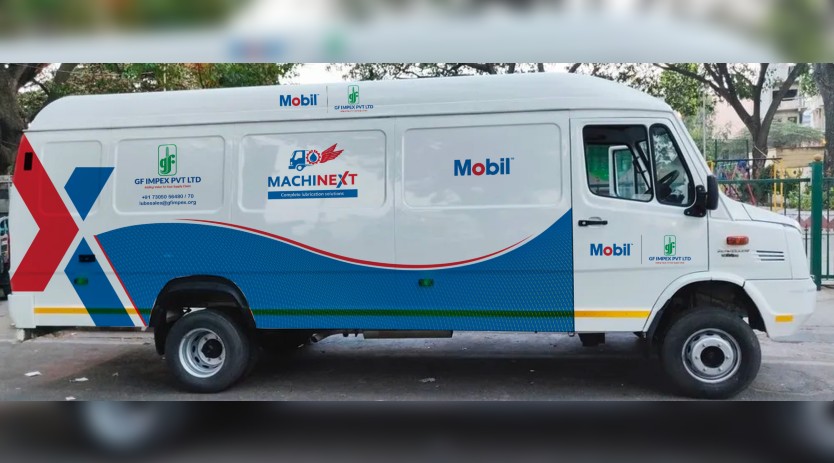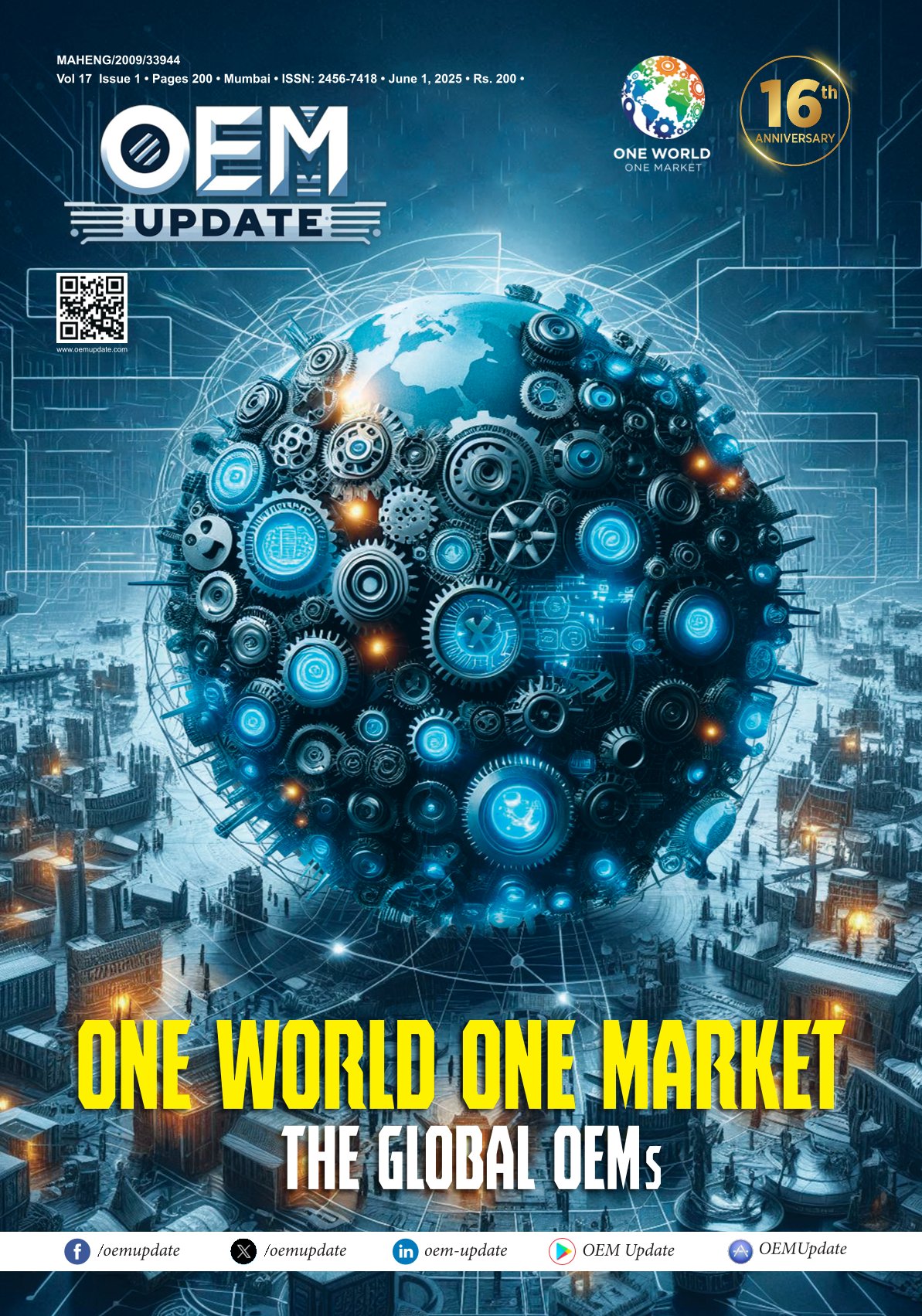Eco-friendly norms transformed lubricant formulation, manufacturing, and usage
By OEM Update Editorial July 1, 2023 11:39 am IST
One of the notable transformations in the automobile market is the increasing demand for environmentally friendly and sustainable solutions, observes Hitendra Bhargava, CEO and Regional Management Board Member Asia-Pacific, Klüber Lubrication and so, and consumers are now seeking vehicles that offer fuel efficiency, lower emissions, and a reduced environmental impact.
How are you responding to the increasing demand for environmentally friendly lubricant solutions?
The impact of environmentally friendly standards on the lubricants industry is of utmost importance and cannot be overstated. Klüber Lubrication, as a leading company in the industry, acknowledges the significance of these eco-friendly norms and evaluates their effects with great importance. The commitment to sustainability is reflected in Klüber Lubrication receiving the prestigious “Gold Medal” from EcoVadis in 2023, placing the company among the top 4 per cent of over 100,000 assessed companies worldwide. The award recognises Klüber Lubrication’s dedication to climate protection and its high standards for minimising its ecological footprint.
Adopting eco-friendly norms has led to a fundamental transformation in the formulation, manufacturing, and use of lubricants. As global concerns about climate change and the depletion of natural resources continue to grow, there is an increasing demand for sustainable and environmentally friendly solutions in various industries. The lubricant industry is no exception, and manufacturers have been compelled to re-evaluate their practices and develop products that align with these regulations. Klüber Lubrication perceives this shift as an opportunity for innovation and growth.
A significant aspect of the changing landscape for lubricants due to eco-friendly norms is the development of greener formulations. There is a noticeable trend towards using biodegradable base oils, renewable resources, and additives free from toxic or harmful substances. These advancements improve the performance of lubricants and minimise their impact on the environment throughout their entire lifecycle.
Moreover, eco-friendly lubricants contribute to conserving natural resources and reducing carbon emissions. They contributed to enhanced energy efficiency and decreased friction, which led to longer equipment lifespan and reduced maintenance requirements. These benefits promote sustainable practices and ultimately result in cost savings for industries.
How has Klüber Lubrication adapted to the changing demands of the automobile market?
The oil and lubricant industry has undergone significant changes due to the transition in the automobile market, driven by shifting consumer preferences, technological advancements, and environmental concerns. As a prominent player in this industry, we have observed and actively participated in the necessary evolution to meet the emerging demands in the automobile market.
One of the notable transformations in the automobile market is the increasing demand for environmentally friendly and sustainable solutions. With growing environmental awareness, consumers seek vehicles that offer fuel efficiency, lower emissions, and a reduced environmental impact. In response, the oil and lubricant industry has been prompted to develop products that align with these objectives. The industry has responded to these demands by introducing lubricants specifically formulated for modern engines. These lubricants are designed to deliver optimal performance, fuel efficiency, and emission reduction. Advanced additives are incorporated into these lubricants to enhance engine protection, minimise friction, and optimise energy efficiency. Furthermore, lubricant manufacturers are developing products compatible with alternative fuels and electric vehicles, catering to the changing needs of the automobile market.
Furthermore, the industry has embraced technological advancements to address the new demands in the automobile market. Lubricant manufacturers leverage digitalisation and data-driven insights to create lubricants tailored to specific vehicle models and operating conditions. This approach enables enhanced performance, reduced wear and tear, and optimised maintenance schedules, resulting in improved reliability and cost savings for vehicle owners.
At Klüber Lubrication, we have embraced these changes and have been at the forefront of developing innovative lubricant solutions to meet the evolving demands in the automobile market. Our research and development efforts are focused on creating lubricants that offer superior performance, sustainability, and compatibility with emerging automotive technologies. We actively collaborate with automobile manufacturers, industry experts, and regulatory bodies to stay ahead of industry trends and ensure our lubricants meet the highest standards.
How is the growth of eco-friendly lubricants being influenced by the EV industry?
The rapid growth of the electric vehicle (EV) industry has had a notable impact on the demand for eco-friendly lubricants. The shift towards EVs signifies a significant change in the automotive sector, driven by the objective of reducing greenhouse gas emissions and mitigating the environmental impact of transportation. It is crucial to acknowledge that the lubricants used in these vehicles play a vital role in ensuring optimal performance and efficiency while minimising the environmental impact. EVs have distinct operational requirements compared to internal combustion engines, necessitating specialised lubricants. These lubricants are specifically designed to meet electric drivetrains’ unique needs, including electric motors, transmissions, and battery systems. Their formulations are tailored to minimise friction, maximise energy efficiency, and improve overall EV performance.
One of the key considerations in developing environmentally friendly lubricants for EVs is their impact on energy consumption. These lubricants are formulated to minimise internal friction within electric drivetrains, thereby minimising energy losses and maximising the range of EVs. By minimising friction, these lubricants enhance the overall efficiency of EVs, contributing to their environmental sustainability.
Additionally, environmentally friendly lubricants for EVs are formulated using biodegradable base oils and additives that are free from toxic or harmful substances. Their design aims to minimise environmental impact throughout the entire lifecycle, from production to disposal. By opting for eco-friendly lubricants, the EV industry can showcase its dedication to sustainability and align with the global trend towards greener technologies.As a leading lubricant manufacturer, we fully recognise the growing demand for eco-friendly lubricants in the expanding EV industry. We have made substantial investments in research and development to create lubricants specifically tailored for electric drivetrains. Our lubricants offer exceptional performance, extended service life, and reduced energy consumption while meeting the highest environmental standards.
What key factors drive the demand for specialised lubricants in the automotive and machine tool industries?
The demand and growth prospects for lubricants in the automotive and machine tool industries remain robust and promising. At Klüber Lubrication, we have identified numerous opportunities in these sectors, driven by various factors that indicate a positive outlook for the lubricants industry.
Lubricants ensure optimal vehicle performance, efficiency, and longevity in the automotive industry. As the automotive sector continues to advance, with the emergence of electric vehicles, hybrid technologies, and autonomous driving systems, there is an increasing need for specialised lubricants. These lubricants are specifically formulated to meet the unique requirements of modern engines, transmissions, and drivetrains, offering superior protection, reduced friction, and enhanced fuel efficiency.
In the machine tool industry, lubricants are crucial for the efficient and reliable operation of machinery. As manufacturing, construction, and aerospace industries grow, the demand for machine tools and equipment rises. Consequently, this drives the demand for lubricants capable of withstanding high temperatures, heavy loads, and demanding operating conditions. With the rapid advancements in technology and automation, the machine tool industry is experiencing a shift towards advanced lubricants that deliver improved performance, extended maintenance intervals, and prolonged equipment lifespan. Additionally, there is an increasing demand for speciality lubricants tailored to specific machine tools applications, such as cutting fluids and metalworking lubricants.
Klüber Lubrication India Private Limited recognises the substantial growth potential in the automotive and machine tool industries. We are dedicated to meeting the evolving demands of these sectors by investing in research and development, innovation, and collaborative partnerships within the industry. By developing customised lubricant solutions that optimise performance, reduce downtime, and ensure environmental sustainability, we aim to support the growth and success of our customers in these industries.
What measures and initiatives can support India’s ambition of becoming the third-largest automobile industry?
Achieving and becoming the third-largest automobile industry is an ambitious goal for India. This requires a multi-faceted approach that involves collaboration between industry stakeholders, policymakers, and businesses. As a leader in the lubricants industry, I propose several measures that can contribute to India’s pursuit of this goal.
First and foremost, investing in research and development (R&D) and fostering innovation is crucial. India should create an environment that promotes R&D and technological advancements in the automobile sector. This involves supporting initiatives encouraging the indigenous development of electric vehicles, hybrid technologies, and autonomous driving systems. Collaborations between industry players, academic institutions, and research organisations can expedite the development of cutting-edge technologies.
Secondly, emphasis should be placed on skill development and training programs. India possesses a vast talent pool, and it is vital to equip the workforce with the necessary skills and knowledge to drive growth in the automobile industry. Establishing skill development centres, vocational training programs, and industry-academia partnerships will ensure that the workforce is well-prepared to meet the sector’s evolving needs.
Improving infrastructure and logistics networks is another key aspect of industry growth. This entails developing robust road and transportation networks, investing in smart and sustainable urban planning, and enhancing connectivity between production centres, ports, and export hubs. By creating efficient and reliable infrastructure, the industry can attract more investments and facilitate the seamless movement of vehicles and components across the country.
Additionally, promoting the development and adoption of renewable energy sources for charging infrastructure and incentivising the production and use of clean fuels can accelerate industry growth while reducing the carbon footprint.
Lastly, a stable and conducive policy framework is essential. The government should focus on creating a business-friendly environment, streamlining regulatory processes, and providing incentives for investment and manufacturing in the automobile sector. Clear policies related to taxes, import/export regulations, and R&D incentives will attract domestic and foreign investments, bolstering the industry’s growth.
Cookie Consent
We use cookies to personalize your experience. By continuing to visit this website you agree to our Terms & Conditions, Privacy Policy and Cookie Policy.















